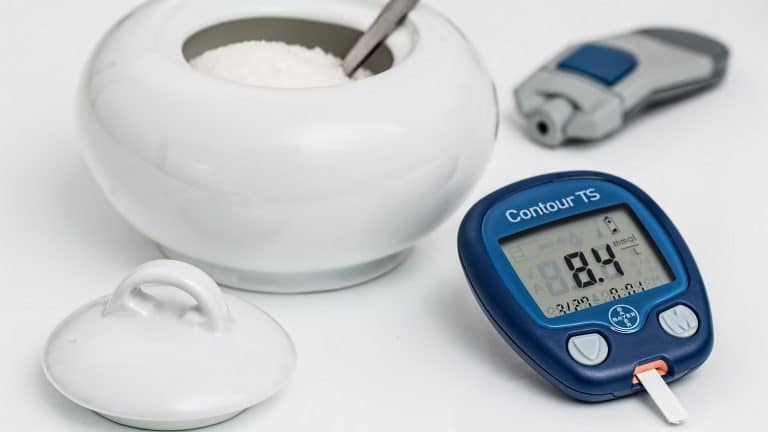How to Take Resveratrol — The Ultimate 2024 Guide

If you’re looking for a natural way to boost your overall health and reduce the risk of developing a serious illness, you might want to consider adding resveratrol to your diet. Resveratrol is an antioxidant-like compound found naturally in some berries, peanuts, and red wine. We’re happy to present you with a comprehensive guide on how to take resveratrol. Read on to learn everything about the intake of this invaluable compound.
What Is Resveratrol Used For?
Resveratrol is a natural compound with powerful antioxidant properties. Why does this matter? It’s simple—antioxidants protect our cells from being damaged by free radicals (harmful unstable atoms), contributing to heart diseases and even cancer. Although this compound can be ingested via supplements made from resveratrol extracts, it’s also found naturally in peanuts, certain berries, red wine, and grapes. Resveratrol exists and can be purchased in two forms: cis-resveratrol and trans-resveratrol. The latter is more effective and considered to be the most potent.
Weight loss is a typical reason why people seek out resveratrol-rich foods or supplements. However, potential resveratrol weight loss benefits are just the tip of the iceberg of the many uses of this compound. Here are some other potential health benefits of resveratrol:
- protecting blood vessels
- promoting heart health
- reducing inflammation and pain
- decreasing blood clotting
- supporting memory and cognitive functions
- preventing and treating cancer
- providing anti-aging properties
- promoting skin health
- possibly boosting insulin sensitivity in diabetic patients
If you would prefer to take resveratrol in capsule or powder form, we have great news! Resveratrol supplement benefits are just as impressive, making the supplemental form of the compound a convenient, efficient, and cost-effective alternative to its natural counterpart.
How to Take Resveratrol – Different Forms
Using resveratrol for the first time can be a bit daunting. For instance, deciding on which form is the most effective can prove difficult. One of the best ways to get your daily resveratrol dose is by increasing your intake of foods that naturally contain the antioxidant-like compound. However, if eating dark chocolate or drinking red wine is not your thing, fortunately for you, there are other ways to consume resveratrol. Our personal favorites are resveratrol capsules, tablets, powders, and topicals. If you are looking for the best resveratrol products out there, then make sure to check out our recommendations in this guide.
Resveratrol Side Effects
Resveratrol has its pros and cons. So before taking supplements or changing your diet, make sure that you discuss it with your physician. With that being said, here are some of the most common side effects of resveratrol (doses of over 2.5g daily):
- vomiting
- nausea
- liver dysfunction in individuals with non-alcoholic fatty liver illness
- diarrhea
A study by the National Center for Biotechnology Information reported that doses of more than 2.5g daily might lead to liver dysfunction in some consumers. However, the resveratrol side effects regarding liver damage still require further research. Please keep in mind that if you try to increase your resveratrol levels by drinking more red wine, this could raise your chances of liver damage, high blood pressure, and other unwanted health conditions. Another possible resveratrol side effect is hair loss, a claim that is unsupported by scientific evidence. Actually, according to the findings of a study, the polyphenols fisetin and resveratrol displayed powerful hair-growth promoting abilities.
Overall, experts witness resveratrol supplement side effects in:
- people with or at risk of having hormone-sensitive cancer
- people who take blood thinners (warfarin or aspirin)
- people who take Tegretol (carbamazepine)
- people who are taking medication with a CP450 alert
Safety First — How Much Resveratrol Should You Take Daily?
Now that you know the many fantastic benefits of resveratrol, you might feel compelled to purchase some supplements. But, you may be asking yourself, how much resveratrol to take?
Luckily, there are general guidelines supported by science:
- For unhealthy individuals wanting to boost cardiovascular health, improve insulin sensitivity, and increase wellbeing, the resveratrol dosage is from 5 to 10mg per day.
- For healthy individuals—from 150 to 445mg per day has shown to work well.
- As a rule of thumb, the weight loss dosage for people with obesity is 500mg or less per day for at least three months.
Overall, the usual dosage of resveratrol is between 250 and 500mg daily. Some experts believe that up to 500mg daily is safe and appropriate. However, always make sure to consult with a healthcare professional—we cannot stress this enough.
Best Time to Take Resveratrol
Unfortunately, there are no strict guidelines on how to take resveratrol or the correct time of day to ingest it. That being said, experts advise taking antioxidants like glutathione, turmeric, and resveratrol before bed. Again, you should discuss this with your doctor for the most accurate instructions.
How to Choose a Resveratrol Supplement
With most of the products claiming to be the best, how can the consumer choose the most effective one? How can we avoid being scammed, and in turn, get the best value for our money? First of all, it’s essential to understand which supplement or food is the best source of resveratrol. In nature, you will find this compound in grapes (grape juice, red wine, and the skin of red grapes), peanuts, pistachios, dark chocolate, cranberries and blueberries, and Itadori tea.
Now, here are some of the most reliable, fool-proof ways to choose the perfect resveratrol supplement:
- Resveratrol in trans form is more biologically active. Helpful tip: look for a resveratrol supplement with a high percentage of trans-resveratrol.
- Choose only highly pure resveratrol supplements. Helpful tip: anywhere around 98% is excellent, and try to avoid products that claim to be a “red-wine complex.”
- Prioritize supplements that utilize whole grape skins. Helpful tip: it’s preferable to choose those that use muscadine grapes.
- Skip supplements with unnecessary additives and fillers, as these can be harmful.
Overall, consider going for a pure trans-resveratrol supplement with zero additives or fillers.
What Is the Best Resveratrol Supplement to Take?
As we noted before, the best resveratrol supplement you can get your hands on is trans-resveratrol with zero added ingredients. There are, of course, other factors you should weigh in when making a purchasing decision, such as the supplement’s potency, the dosage, the manufacturer’s reputation, to name a few. Thankfully, we hand-picked some of the greatest resveratrol products specifically for you. If you would like to acquaint yourself with our picks, check our resveratrol supplement reviews.
Bottom Line
We’ve tried to give you some valuable tips and tricks in this article to help you gain the many potential benefits of taking resveratrol. However, you should always consult a healthcare professional before attempting to self-medicate. We hope that you enjoyed this guide on how to take resveratrol. If so, please share it with your friends, family members, or anyone you think might be interested to learn more about this fascinating compound. Your continued support motivates us to provide more helpful content for you in the future.







I have heard that resveratrol is not soluble in water. What is the best way to take this supplement to obtain the optimal benefit from the dose you are taking?